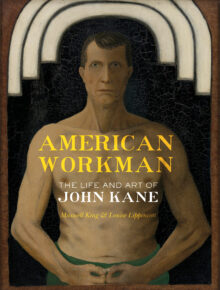
Louise Lippincott
Louise Lippincott is a historian and former curator specializing in American and European art from the Enlightenment to the modern era. She focuses on artists outside the mainstream, and the historical contexts that give meaning to their work. As curator of fine arts at Carnegie Museum of Art, she managed the largest John Kane collection in the United States. Previously she occupied curatorial positions at the J. Paul Getty Museum and Philadelphia Museum of Art.
American Workman
The Life and Art of John Kane
American Workman presents a comprehensive, novel reassessment of the life and work of one of America’s most influential self-taught artists, John Kane. With a full account of Kane’s life as a working man, including his time as a steelworker, coal miner, street paver, and commercial painter in and around Pittsburgh in the early twentieth century, the authors explore how these occupations shaped his development as an artist and his breakthrough success in the modern art world. A rough-and-tumble blue-collar man prone to brawling and drinking, Kane also sought out beauty in the industrial world he inhabited. This Kane paradox—brawny and tough, sensitive and creative—was at the heart of much of the public’s interest in Kane as a person. The allure of the Kane saga was heightened all the more by the fact that he did not achieve renown until he was at the age at which most people are retiring from their professions. Kane’s dedication to painting resulted in a fascinating body of work that has ended up in some of America’s most important museums and private collections. His dramatic life story demonstrates the courage, strength, and creativity of his generation of workmen. They may be long gone, but thanks to Kane they cannot be forgotten.

